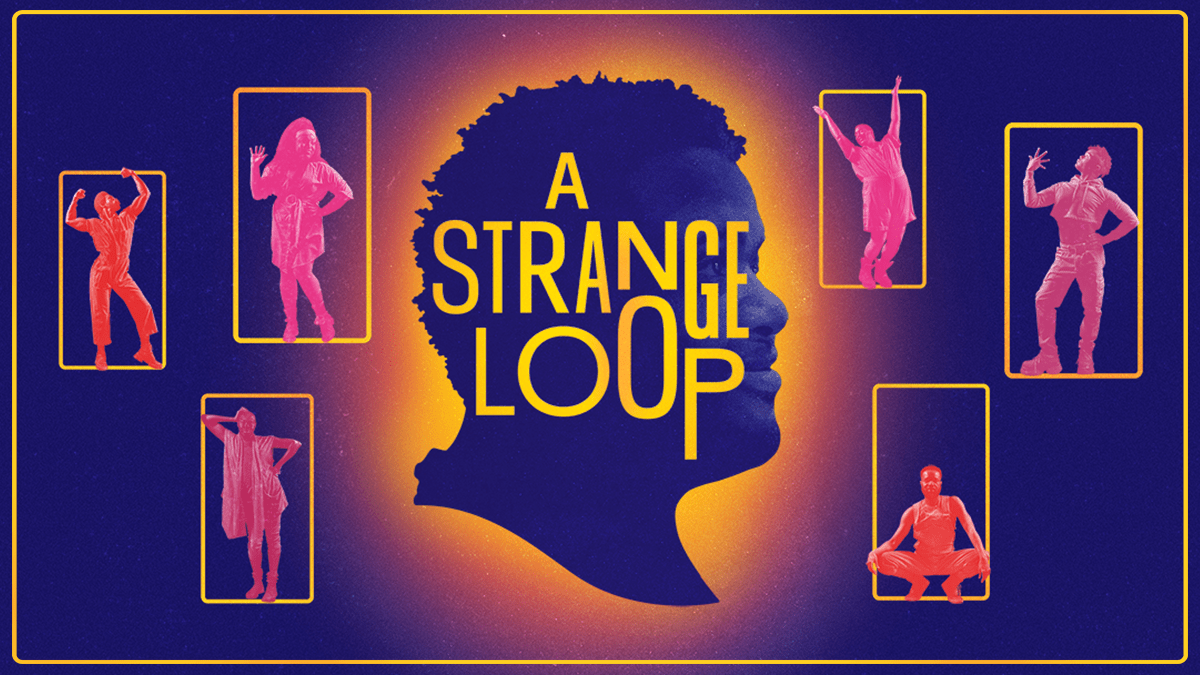THE FIVE-STAR GROUND-BREAKING AND CRITICALLY ACCLAIMED WINNER OF EVERY ‘BEST MUSICAL’ AWARD ON BROADWAY AND THE PULITZER PRIZE, IS TAKING OVER LONDON!
Audiences and critics are raving about A Strange Loop
Described as ‘The most thrillingly playful and hilarious new musical to hit London in years. Spectacular‘ by the Evening Standard, and ‘Magnificent. Strikingly original and highly entertaining‘ by the Guardian, don’t miss your chance to experience this ‘One-of-a-kind masterpiece‘ (Vogue), in London this summer for a one-time only limited season.
A Strange Loop is the story of Usher. He’s a black gay man… writing a musical about a black gay man… writing a musical about a black gay man… surrounded by his chorus of six larger than life ‘Thoughts’ playing the characters in Usher’s mind, from self-berating entities like ‘Daily Self Loathing’ to caricatured depictions of Usher’s parents, to six-packed fantasy men, all while Usher tries to write the musical that we’re watching.
A Strange Loop is ‘A musical for our times’ (The Telegraph), stuffed with catchy memorable songs full of triumphant melodies, ‘innovative storytelling’ and the must see performances of 2023.
‘Strikingly original and highly entertaining.’
Usher plans to change his whole life today.
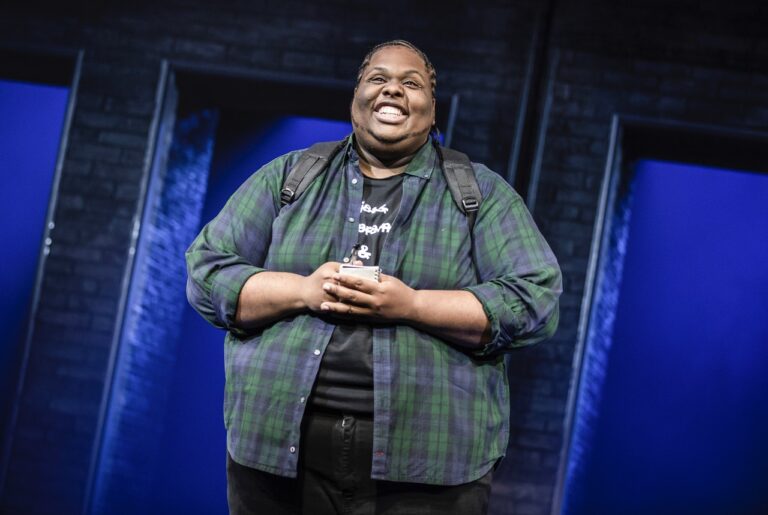
‘The most thrillingly playful and hilarious new musical to hit London in years. Spectacular.’
‘Without doubt, the show of the summer’
How many minutes ‘til the end of intermission?
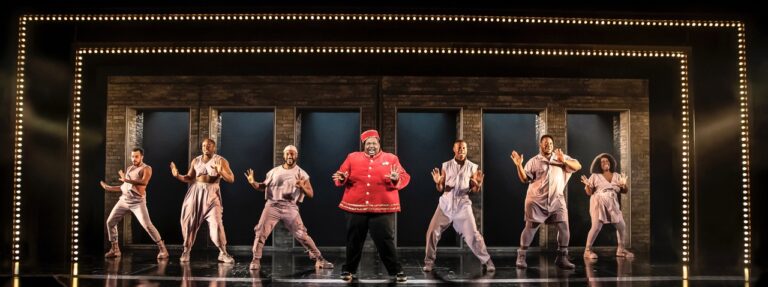
‘A Tour de force. Slick, tuneful, irreverent and funny’
‘An experience you won’t forget.’
He wants to show what it’s like to travel the world in a fat, black, queer body.
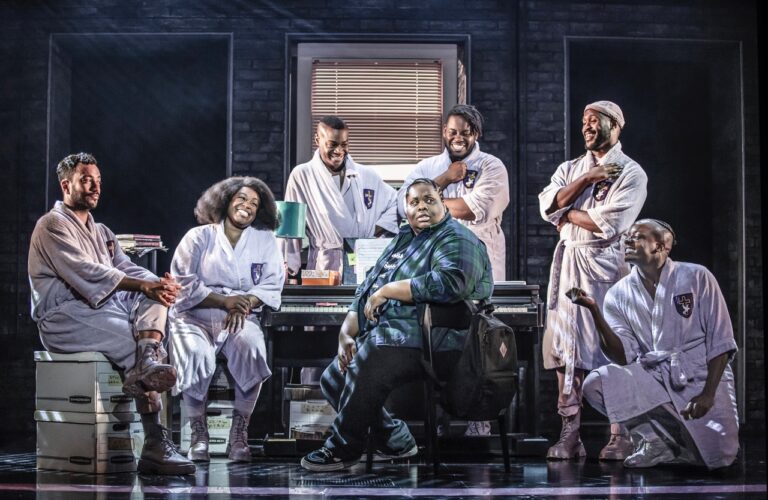
‘A unique piece of theatre – thoughtful, beautiful, provocative and hilarious.’
‘A revolutionary musical with heart’
‘A musical for our times.’
What’s comin’ from New York
The Origin of A Strange Loop
Michael R. Jackson: “At the very beginning, it was only a monologue that I wrote during my last year as a playwriting student at NYU. I was 22, 23 years old with a playwriting degree. I didn’t know what I was going to do with my life, so I wrote this thinly veiled, personal monologue called ‘Why I Can’t Get Work.’ That was about this young, Black gay man walking around New York, wondering why life was so terrible. And it was just that.1 I applied to a bunch of grad schools, and NYU Graduate Musical Theatre Writing was the one I got into. The form of musical theater and songwriting in particular, turned out to be the perfect container for writing I had been doing since middle school.2 One of my classmates—a friend of mine was another Black gay man—wrote a song about a one-night stand and feeling deep religious guilt about it and other feelings that I recognized, because I grew up Black and gay around a lot of other Black gay boys. And it just struck me. And I wrote in my notebook, “All those Black gay boys I knew who chose to go on back to the Lord.”3

“Memory Song”
MRJ: “At the end of my second semester, our teacher said, ‘If you’re a lyricist who’s never written any music and want to try it, or if you’re a composer and want to try writing lyrics, go for it.’ So the song I wrote was ‘Memory Song,’ and it was the first song I had ever written. And it was just a stand-alone song for me.4 The spirit of the song is recalling when I was 15 or 16, which is around the time when I was coming out, which was a very difficult and painful and weird time. I performed [a version of the show] one night only at ARS Nova in New York City. Twenty people came and two of them walked out in the middle of it. And then from there I was like, I don’t want this to be a one-man show, I don’t want this to be a cabaret act, I want it to be a musical.”5
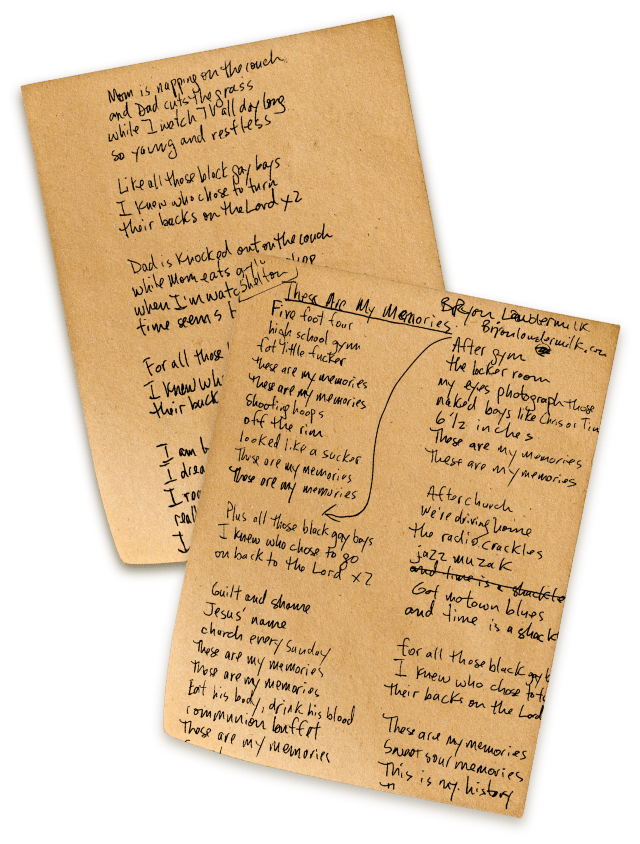
Timeline of
A Strange Loop
Rebel Verses (Center Stage)
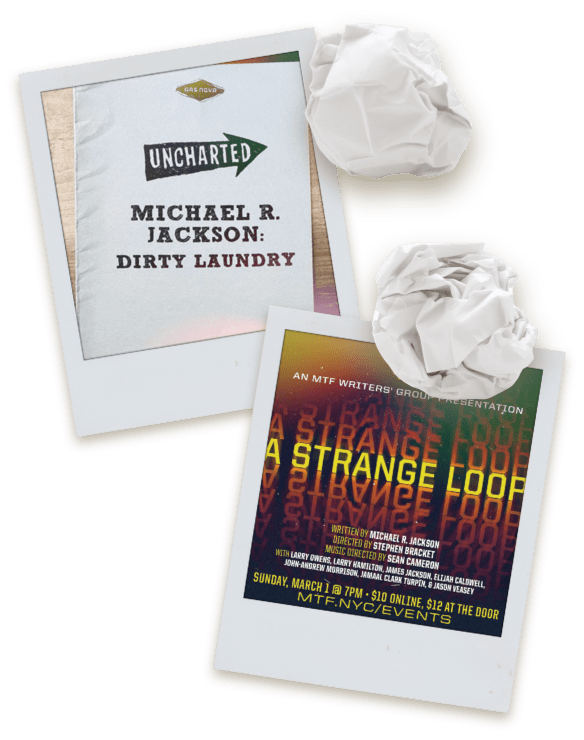
Fast Food Town (Ars Nova)
A Strange Loop (Playwrights Realm)
The Lark
Broadway’s Future Concert Series
First Reading
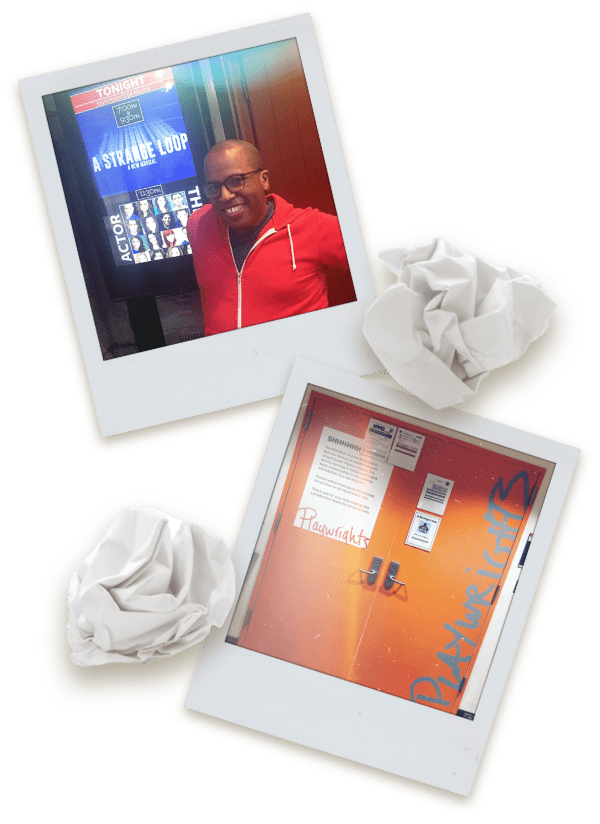
Musical Theatre Factory
New Musicals at 54 Below
Reading at Playwrights Horizons
Off Broadway Season
Broadway Season
London’s West End
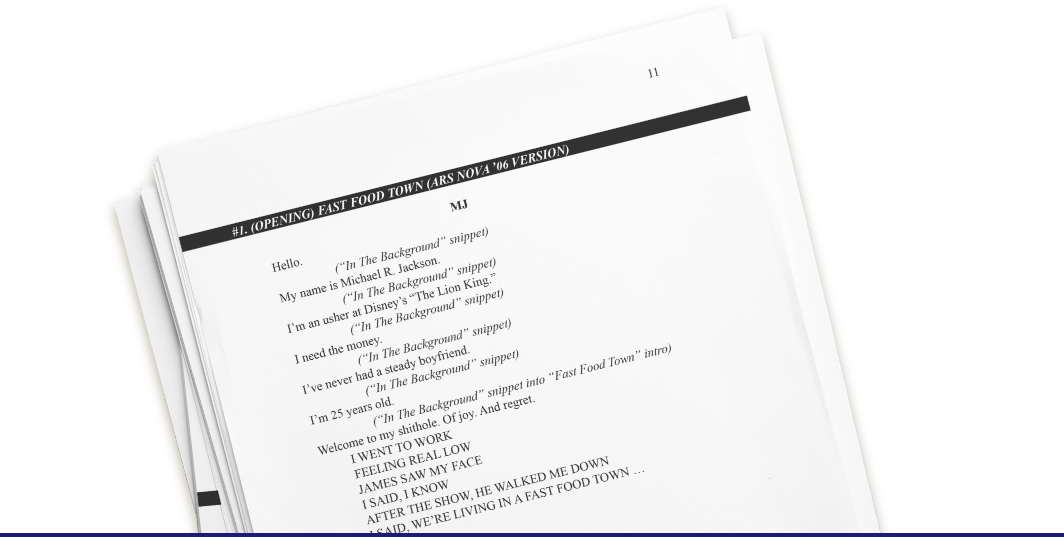
Michael R. Jackson: “I felt determined that I could create something that had as much entertainment value as something that you would expect to see on Broadway, but that it had the sort of heart and intelligence that are in a lot of those classic musicals of yesteryear that are harder to get produced today.6 I had to learn what the story was. I’m a very story-driven writer, and it was drawn from my personal experience, but it needed to have a beginning, middle, and end, and there was no beginning, middle, and end to my life. It wasn’t until I started going to therapy that I realized the problem was, ‘Oh, you think something’s wrong with you. And there is nothing wrong with you.’ I captured that that was Usher’s problem—something’s wrong with him, he’s got to fix it—and once it was married to this strange-loop structure, I knew what I was chasing.”7
1.Slate’s Working Podcast 2. Playwrights Horizons 3. PBS’s American Masters Creative Spark Podcast 4. Playwrights Horizons 5. PBS’s American Masters Creative Spark Podcast 6. The Fabulous Invalid Podcast 7. Slate

